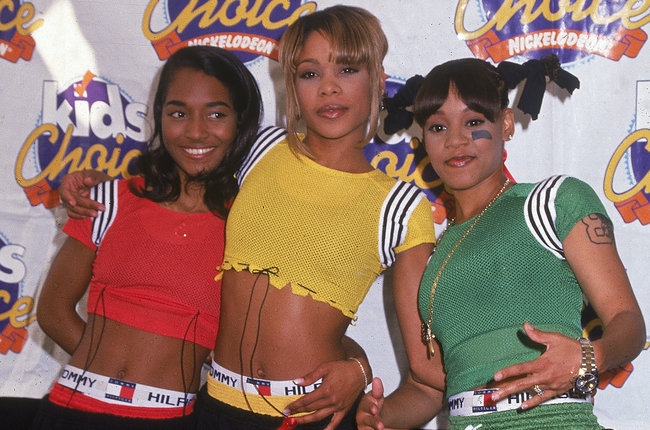Unless Viacom strikes a settlement or something else unexpected occurs, the media conglomerate is heading to a rare defamation trial concerning a docudrama. On Friday, a federal judge in Georgia largely denied Viacom's bid to reconsider summary judgment in a case brought by Perri "Pebbles" Reid over CrazySexyCool: The TLC Story, a biopic about the 1990s R&B group that aired on VH-1 in 2013.
Reid is the former manager for TLC who alleges in a $40 million suit that she was presented in an unflattering light. In September 2016, U.S. District Court Judge Mark Cohen ruled a jury should decide whether CrazySexyCool defamed her by creating the impression that members of TLC were pressured by Reid to sign contracts without review by a lawyer.
In a motion for reconsideration, Viacom took issue with some of the judge's analysis regarding actual malice, a necessary element in a case concerning a public figure. Elizabeth McNamara, the same attorney who has been representing Rolling Stone in defamation cases over a retracted campus rape story, argued for Viacom that Cohen had erred by imputing alleged bias on the part of the filmmakers' sources for what was shown in CrazySexyCool. Specifically, even if TLC members Tionne "T-Boz" Watkins and Rozonda "Chilli" Thomas held some sort of grudge against Reid, Viacom contended that the judge should note the absence of any evidence demonstrating such bias gave defendants reason to believe the information obtained was unreliable.
In response, Cohen interprets this argument as tantamount to a rule "requiring a subjective showing of actual doubt." He rejects this, adding that Viacom has "not presented one controlling case that stands for the proposition that source bias cannot be probative of actual malice as a matter of law absent corroborating evidence that the bias actually created doubt in the defamation defendant's mind about the accuracy of the information conveyed by that source."
The judge adds that the bias of Tionne and Chilli is "one factor" being considered, but that the "undisputed evidence" shows that Tionne and Chilli were the screenwriter's sole source of information in drafting and revising the movie script.
"Finally, and more fundamentally, Defendants' argument improperly suggests that this Court inappropriately weigh the evidence at this stage of the litigation," writes the judge. "Weighing the evidence to reach a conclusion regarding Defendants' state of mind is inappropriate at the summary judgment phase of litigation."
Viacom took issue with that as well. Often, the summary judgment phase (unlike the motion to dismiss phase) is the moment when judges regard and weigh evidence to determine what a reasonable juror could conclude. In this instance, in his earlier ruling, Cohen decided that a defendant's state of mind doesn't readily lend itself to summary disposition. McNamara argued that this view of the law was "all but overruled" by legal precedent, but Cohen sticks by his own view (supported by one prior case) that courts should be reluctant to grant special procedural protections to defendants in libel and defamation actions.
The defendant can take one small victory from the latest ruling. Judge Cohen now agrees with Viacom that he should have considered actual malice as it related to each allegedly defamatory scene in the movie instead of actual malice in the abstract. After reviewing the weight of evidence on a scene-by-scene basis, the judge has now trimmed what's in contention from ten scenes down to six. Viacom no longer has to defend a scene regarding how Reid only paid TLC members $25 a week and a scene over the decision to remove Chilli from the group, among others.
The judge says that Tionne and Chilli's bias is "supportive" of actual malice here, but that the remaining evidence — including casting notes how Reid was "not quite ethical" — doesn't relate to these four scenes.
Nevertheless, Viacom not only loses its attempt to avoid trial, but the judge rejects an alternative motion to certify the case for an interlocutory appeal, meaning one that would come before trial. Viacom could try to get the 11th Circuit Court of Appeals to nonetheless intervene, but the judge's non-cooperation makes that tougher. The parties now have thirty days to submit a pretrial order.








